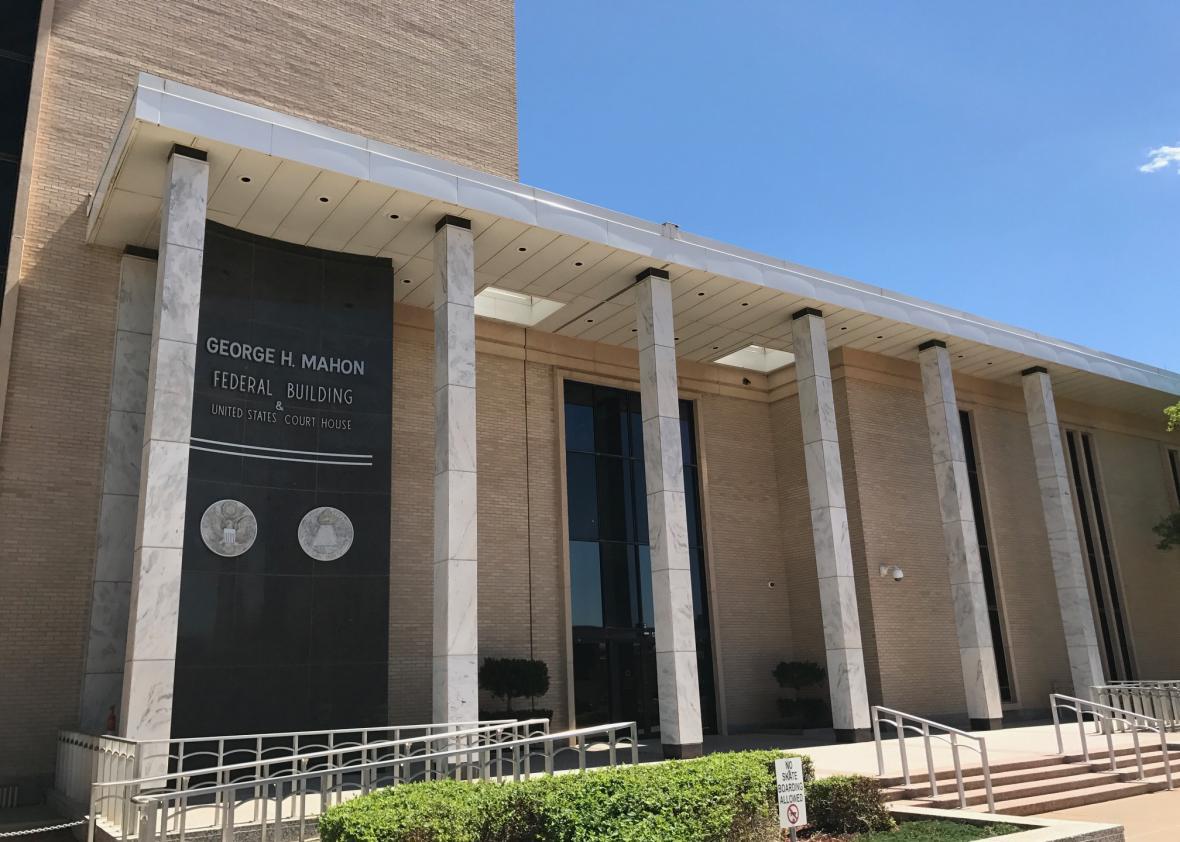LUBBOCK, Texas—Have the lawyers defending Mississippi’s anti-LGBTQ bill actually read their own statute?
This question loomed large over hearings here on Monday at the 5th Circuit U.S. Court of Appeals. Civil rights attorneys challenging the Mississippi statute, HB 1523, argue that it promotes certain religious beliefs over others and legalizes discrimination against LGBTQ people. That reading would seem to be reasonable, since the bill explicitly states that anti-gay and anti-trans beliefs receive special legal protection, and allows anti-LGBTQ discrimination in employment, housing, medical treatment, public accommodations, adoption, and marriage licensing. But when Roberta Kaplan, a Paul, Weiss attorney arguing against the law, raised this point in court, her opponent, Jonathan Mitchell, contested it.
“This statute has been mischaracterized so many times,” Mitchell told the court with a weary sigh. He insisted that a public school teacher who promotes anti-gay beliefs in a second-grade classroom could be re-assigned under HB 1523. Judge Catharina Haynes, one of the 5th Circuit’s sharpest judges, looked puzzled.
“Why?” she asked. After all, the law bars the government from taking any “adverse employment action” against state employees for promoting anti-LGBTQ beliefs. Mitchell responded that the school could create a “neutral policy” barring schoolteachers from espousing political views in school. But that would not solve the problem at all. Even if a school passed such a policy, it would be barred under HB 1523 for punishing a teacher who violated it so long as they did so by endorsing anti-LGBTQ views. The text of the law is absolute: There are no exceptions and no balancing of interests.
Haynes raised another concern: that HB 1523 allows restaurants to eject same-sex couples. Mitchell responded that serving these couples wouldn’t constitute a “recognition” of their marriage under the law.
“What about a rehearsal dinner for a same-sex couple?” Haynes asked. Mitchell scoffed.
“A rehearsal dinner? At a restaurant?” he responded incredulously. Yes, Haynes said, informing Mitchell, perhaps for the first time in his life, that not all couples conduct rehearsal dinners in swanky hotel ballrooms. Mitchell hedged, equivocated, and dodged, informing Haynes that the court had to “defer to the state’s reasonable construction.”
Before we continue, a brief word about this line of argument. Federal courts are, indeed, required to defer to a state’s interpretation of its statutes. But the state’s attorneys aren’t the ones who do the interpreting. It’s the state’s courts. If a state court rules that HB 1523 doesn’t allow discrimination, the federal courts must rely upon that interpretation. But if a state’s lawyer says so on the fly with absolutely no evidence or legal authority, the federal courts owe him no deference.
Haynes pointed this out to Mitchell, reminding him, “Your interpretation of the law is not binding on a judge. A judge isn’t bound by what you told me.” Mitchell responded with the most jarring line of the day, telling Haynes that if a state judge interprets HB 1523 incorrectly, he should be “impeached.”
Judge Jennifer Walker Elrod leaned forward with a shocked expression. “If a judge interprets something incorrectly,” she asked with evident alarm, “we should impeach them?”
Mitchell broke into a laugh, realizing how badly he had erred.
“No!” he said. “Not you!” Then he reiterated his main point: HB 1523 is not “a license to discriminate.”
This argument tracks Mitchell’s brief, which described fears about HB 1523’s discriminatory potential as “hysterical.” And it is almost unbelievably dishonest. The bill does not only license businesses to discriminate against LGBTQ people. It also declares that the law must “be construed in favor of a broad protection of free exercise of religious beliefs and moral convictions, to the maximum extent permitted by the state and federal constitutions.” Even if those terms were ambiguous—which they aren’t—courts would still be required to interpret them as broadly as possible. Mitchell is simply lying when he alleges otherwise.
Monday’s arguments, then, had a whiff of gaslighting about them. Mississippi passed HB 1523 in direct response to the Supreme Court’s invalidation of same-sex marriage bans nationwide in an effort to legalize anti-LGBTQ discrimination. Everyone knows this. The bill’s sponsors acknowledge it. The bill itself acknowledges it. Yet Mitchell stood in front of the 5th Circuit for 45 minutes and denied this basic reality. The court should have reprimanded Mitchell and his co-counselors for misrepresenting the truth; the least it can do now is smack down their absurd argument in an emphatic ruling. Mississippi’s lawyers, it seems, do not even have the courage to stand up for the state’s bigoted convictions in a court of law.
